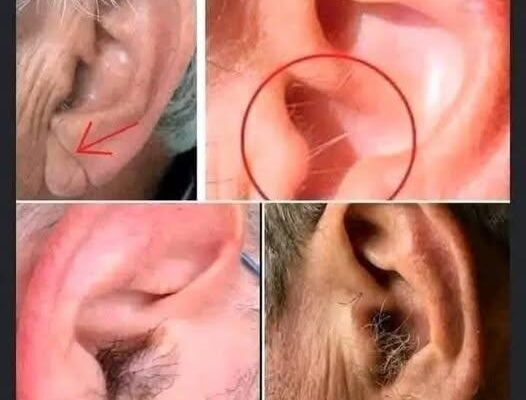Did You Know? If Hair Grows on Your Ears, Your Body Might Be Trying to Tell You Something!
Have you ever noticed hair growing on your ears and wondered why it happens? While many people assume it’s just a normal part of aging, there may be more to it than you think. Ear hair growth isn’t just a cosmetic concern—it could be a signal from your body about underlying health conditions.
In most cases, ear hair is completely normal, especially in men as they get older. It occurs due to hormonal changes, particularly an increase in testosterone levels, which can stimulate hair follicles in unusual places. However, some research suggests that excessive ear hair could be linked to higher risks of heart disease. A 1984 study published in the New England Journal of Medicine found a potential correlation between ear hair growth and an increased risk of coronary artery disease. While this doesn’t mean ear hair is a direct cause, it’s a factor that some doctors consider as part of overall health assessments.
Additionally, ear hair plays a role in protecting your ears from dust, dirt, and debris. It acts as a natural filter to prevent particles from entering your ear canal. However, excessive hair can sometimes lead to issues like wax buildup or even infections.
If you notice a sudden increase in hair growth in your ears, it’s always a good idea to check in with a healthcare professional. It may simply be a harmless genetic trait, or it could be a small clue about your overall health. Listen to your body—it may be telling you something important!
DID YOU KNOW? If Hair Grows on Your Ears, It’s Because Your Body Is Trying to Tell You Something!
Have you ever noticed hair growing on your ears and wondered why it’s happening? While it might seem like just another odd quirk of aging, ear hair growth can actually be an indicator of certain biological processes and health conditions. In this article, we’ll explore why hair grows on your ears, what it means for your body, and whether or not you should be concerned.

